Many people often think that preventing dementia is a matter of old age, but science shows that what you eat from middle age has silently shaped your brain health later in life.
A new study from Boston University (USA) shows that regularly eating fruits rich in flavonoids - a group of natural plant compounds that can protect cells - can reduce the risk of dementia by up to 44%.
The link between flavonoids and brain health
Flavonoids are a group of powerful antioxidants found in vegetables, fruits, and some herbs. They help the body fight oxidative stress, reduce inflammation, and protect nerve cells from the effects of toxins.
In a study published in the Journal of Alzheimer's Prevention, scientists analyzed data from nearly 2,800 participants in the Framingham Heart Study, a long-standing health monitoring project in the United States.
They compared flavonoid-rich fruit consumption in two stages: middle age (42-59 years) and old age (60-82 years), and then correlated it with dementia diagnosis.
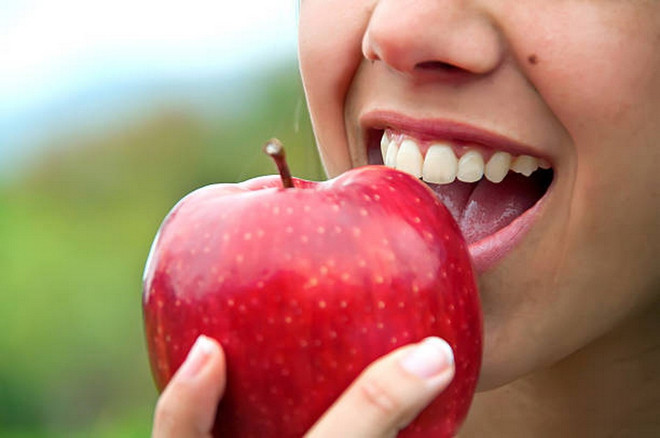
Results showed that people who ate more flavonoid-rich fruits in middle age had a 44% lower risk of dementia than those who ate less.
In old age, this link is less clear, but some fruits such as oranges, grapefruit, blueberries, peaches, plums… still show significant benefits.
Apples and pears are especially beneficial if eaten regularly in both middle age and old age.
Experts say that starting flavonoid supplementation early may provide long-term protection for the brain against chronic inflammation and nerve cell damage, which are known to contribute to Alzheimer's disease and other forms of dementia.
9 Flavonoid-Rich Fruits You Should Include Regularly
The good news is that flavonoids are not in the group of "rare foods" but are present in familiar fruits and vegetables that we eat every day.
1. Blueberries
Blueberries are the “star” of the berries, with a very high content of anthocyanin, a type of flavonoid. This substance not only creates the characteristic blue-purple color but also helps increase blood circulation to the brain, improving short-term memory.
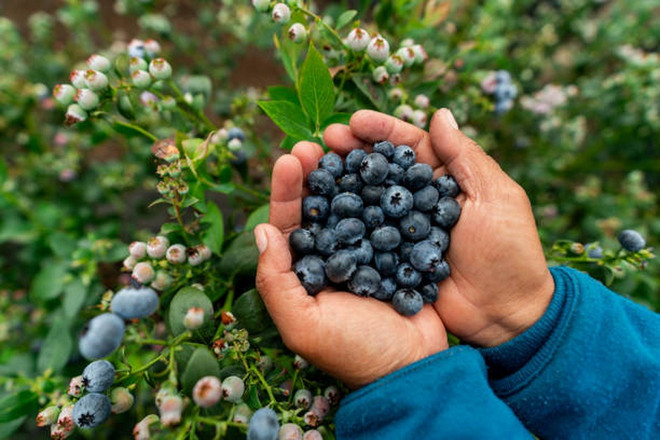
How to supplement: Eat directly about 100g/day, or blend into a smoothie, add to yogurt or oatmeal for breakfast.
2. Apples
Apples are rich in quercetin, a flavonoid that reduces inflammation and fights the effects of free radicals on nerve cells. The apple peel contains the most nutrients, so eating the peel (washed) will maximize the benefits.
How to add: Eat as a dessert, or slice and add to salad.
3. Pear
Pears contain antioxidants such as vitamin C, flavonoids and anthocyanins, which help protect brain cells from the effects of free radicals, which cause neurodegenerative diseases such as Alzheimer's and Parkinson's.
How to supplement: Eat directly about 100g/day, after main meals, especially after full meals to avoid stomach irritation.
4. Strawberries
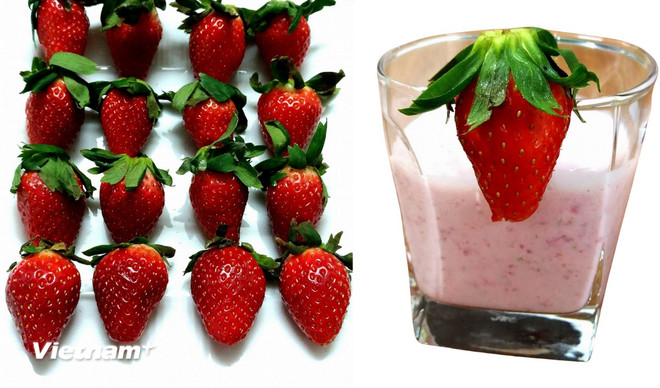
Strawberries are rich in anthocyanins and vitamin C, which help reduce inflammation in the brain and improve the ability to process information. Some studies have even shown that eating strawberries regularly can slow down memory loss by up to 2.5 years.
How to supplement: Eat directly 80-100g/day or make smoothies, fruit salad.
5. Oranges, lemons, grapefruits
Citrus fruits are rich in hesperidin, a flavonoid that improves blood circulation to the brain and enhances concentration. The vitamin C in them also aids in the production of the neurotransmitters dopamine and serotonin.
How to supplement: Drink fresh juice, eat the whole clove to take advantage of soluble fiber.
6. Bell peppers
Bell peppers—especially red and yellow varieties—are rich in the flavonoids luteolin and apigenin. These have anti-inflammatory effects and protect brain cell structures.

How to supplement: Eat bell peppers raw, in salads or stir-fry quickly to preserve vitamins.
7. Eggplant
Eggplant skin contains nasunin - an anthocyanin that helps protect nerve cell membranes and aids in removing heavy metals from the brain.
How to eat: Bake, steam, or braise; avoid deep-frying to avoid losing health benefits.
8. Purple grapes
Purple grapes are one of the fruits richest in flavonoids, resveratrol. They contribute to enhancing brain function, promoting mood elevation, improving learning ability and concentration.
How to supplement: Eat directly about 150g/day or make juice without added sugar.
9. Tomatoes
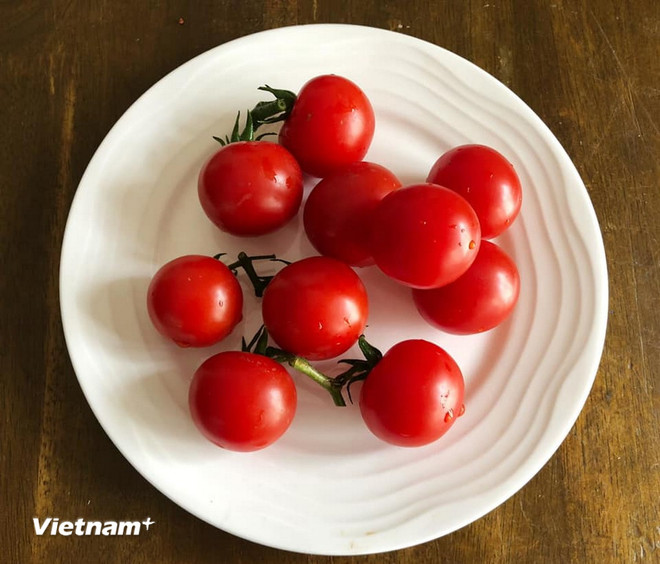
Tomatoes contain the flavonoid naringenin and lycopene, a powerful antioxidant that protects the brain and heart. Research shows that lycopene also helps reduce the formation of beta-amyloid plaques, which are linked to Alzheimer's.
How to supplement: Eat raw, juice, or cook with olive oil to increase lycopene absorption.
How to eat to effectively protect the brain?
Start early: The most significant benefits appear when maintaining a habit of eating flavonoid-rich fruits from age 40 to 50.
Diversify your flavonoid sources: Don't just focus on one type of fruit, but rotate between many types to get a full range of nutrients.
Combine with a healthy diet: Research shows that flavonoids work well when combined with a Mediterranean, DASH or MIND diet - rich in vegetables, nuts, fish and healthy fats./.
Source: https://www.vietnamplus.vn/thuong-xuyen-an-9-loai-qua-nay-se-giup-ban-giam-nguy-co-mat-tri-nho-khi-ve-gia-post1055405.vnp






![[Photo] Dan Mountain Ginseng, a precious gift from nature to Kinh Bac land](/_next/image?url=https%3A%2F%2Fvphoto.vietnam.vn%2Fthumb%2F1200x675%2Fvietnam%2Fresource%2FIMAGE%2F2025%2F11%2F30%2F1764493588163_ndo_br_anh-longform-jpg.webp&w=3840&q=75)










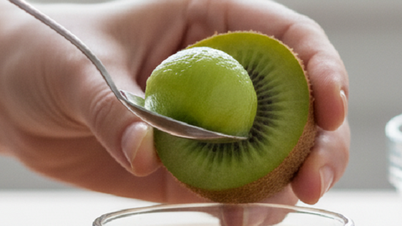






























































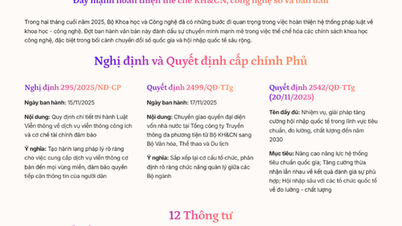



























Comment (0)